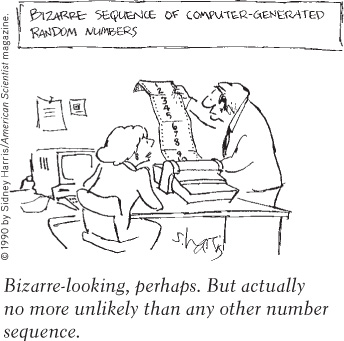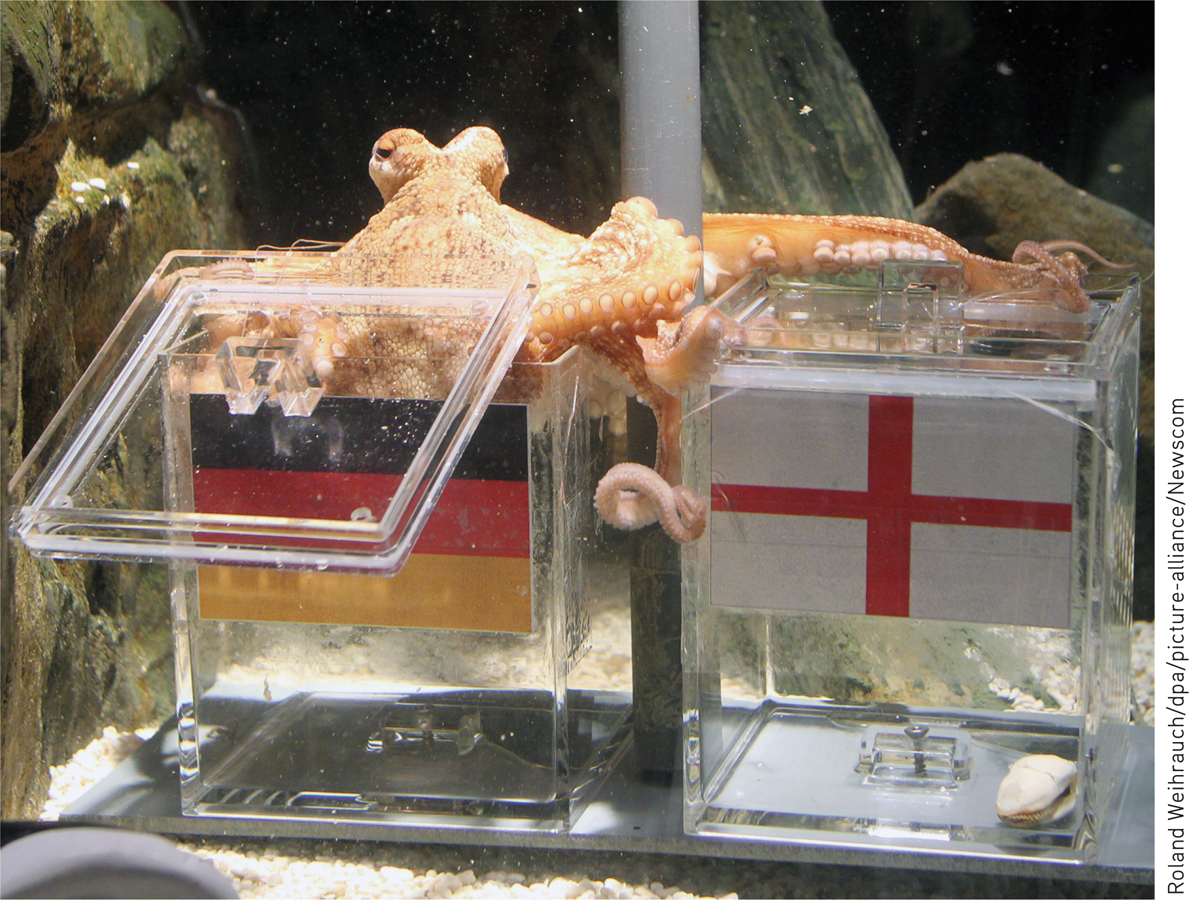2.3 Perceiving Order in Random Events

In our natural eagerness to make sense of our world, we perceive patterns. People see a face on the Moon, hear Satanic messages in music, perceive the Virgin Mary’s image on a grilled cheese sandwich. Even in random data, we often find order, because—here’s a curious fact of life—random sequences often don’t look random (Falk et al., 2009; Nickerson, 2002, 2005). Flip a coin 50 times and you may be surprised at the streaks of heads and tails. In actual random sequences, patterns and streaks (such as repeating digits) occur more often than people expect (Oskarsson et al., 2009).
However, some happenings, such as winning a lottery twice, seem so extraordinary that we struggle to conceive an ordinary, chance-related explanation. “But with a large enough sample, any outrageous thing is likely to happen,” note statisticians Persi Diaconis and Frederick Mosteller (1989). An event that happens to but 1 in 1 billion people every day occurs about 7 times a day, 2500 times a year.

Consider how scientific inquiry can help you think smarter about hot streaks in sports with LaunchPad’s How Would You Know If There Is a Hot Hand in Basketball?
The point to remember: Hindsight bias, overconfidence, and our tendency to perceive patterns in random events often lead us to overestimate our intuition. But scientific inquiry can help us sift reality from illusion.
 is a research-based online learning tool that will help you excel in this course. Visit LaunchPad to take advantage of self-tests, interactive simulations, and
is a research-based online learning tool that will help you excel in this course. Visit LaunchPad to take advantage of self-tests, interactive simulations, and  HOW WOULD YOU KNOW? activities. For a 1-minute introduction to LaunchPad, including how to get in and use its helpful resources, go to http://tinyurl.com/LaunchPadIntro. In LaunchPad, you will find resources collected by module groups. Additional resources may be found by clicking on the “Resources” star in the left column.
HOW WOULD YOU KNOW? activities. For a 1-minute introduction to LaunchPad, including how to get in and use its helpful resources, go to http://tinyurl.com/LaunchPadIntro. In LaunchPad, you will find resources collected by module groups. Additional resources may be found by clicking on the “Resources” star in the left column.
